Hospitals inquiry enters new phase after dispute over expert reports
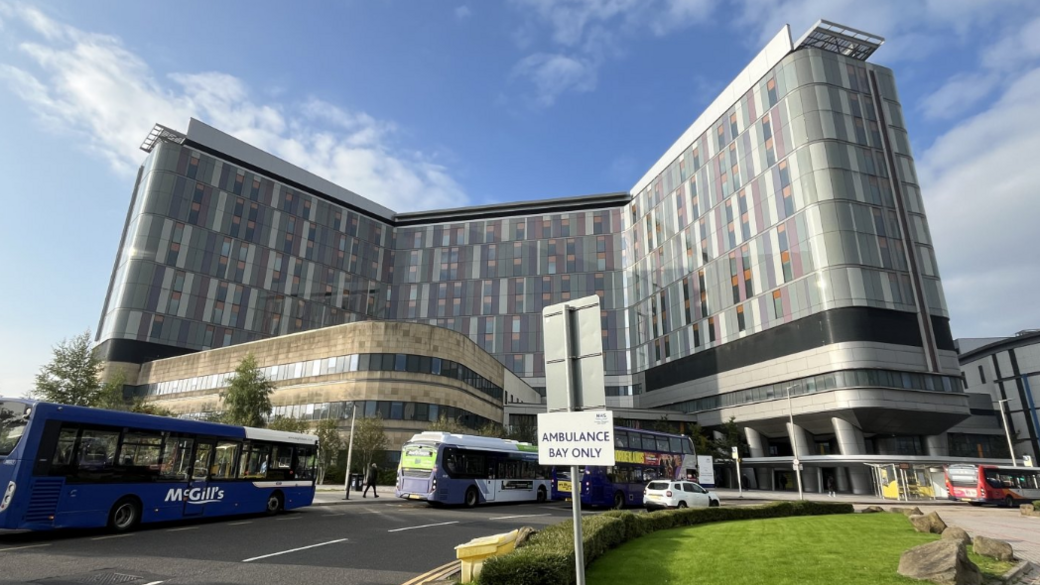
- Published
When Molly Cuddihy gave evidence to the Scottish Hospitals Inquiry, her view was clear: "The building itself is sick."
She had become seriously ill at the age of 15 with an unusual infection during cancer treatment at the Queen Elizabeth University Hospital (QEUH) campus in Glasgow.
The inquiry is now entering its third phase of considering events at the QEUH, following hearings where a contentious new report contradicted earlier findings about infections in the £870m hospital.
Sparked by concerns about unusual infections and the deaths of four patients at the QEUH, the inquiry was set up to examine mistakes made in the planning, design and construction of the hospital in Glasgow.
It has also examined building and ventilation issues at a children's hospital in Edinburgh.
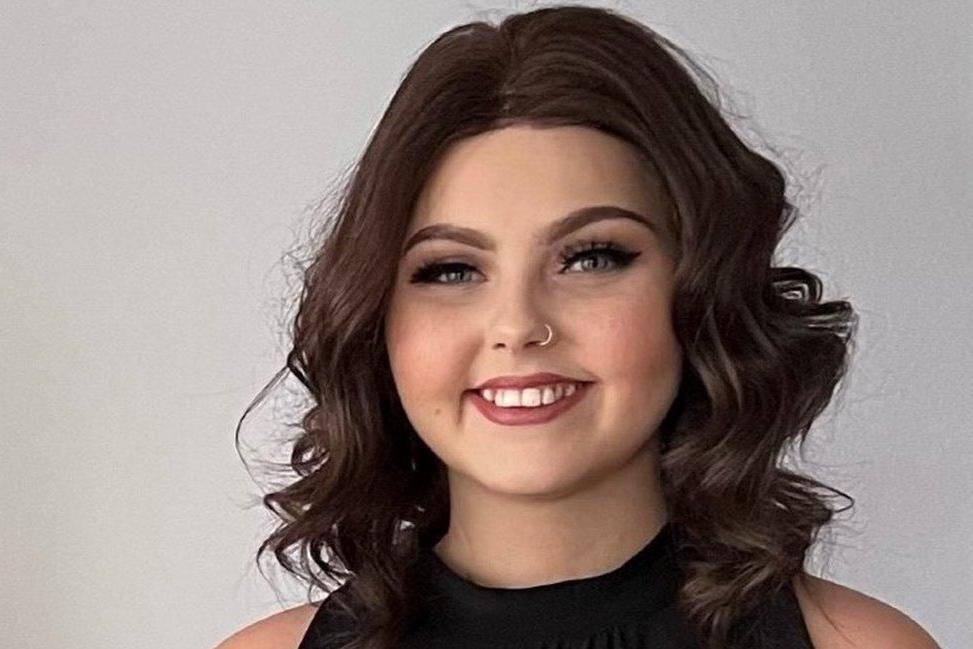
Molly Cuddihy, who died last month at the age of 23, gave evidence at the hospitals inquiry in 2021
Giving evidence in 2021, Molly spoke eloquently for nearly five hours about her experiences.
She smiled broadly when retelling how the Glasgow hospital's respiratory physios helped her get fit enough to sing with pop star Paolo Nutini.
But she was forceful in her frustration at how the people in charge of the hospital dealt with the infection crisis.
"What's been forgotten along the way with how management have dealt with things is that it's not a normal job where if mistakes are made, you can just try again tomorrow.
"There's patients at the centre of it and that's lives that are impacted."
Molly died last month aged 23 after she became seriously ill with another infection which was potentially acquired in the QEUH.
Her case was one of dozens which were examined by an independent review from 2021 which has formed the backbone of the hospitals inquiry so far.
What was said in the 2021 review?
This external investigation headed by Prof Michael Stevens, external, known as the case note review, found that 84 children - including Molly - were infected with rare bacteria while undergoing treatment. A third of these patients suffering a severe health impact.
It also concluded two deaths were at least in part the result of infections linked to the QEUH environment.
At age 15, Molly was one of three children who tested positive for the rare bacterium, Mycobacterium chelonae.
The independent panel found that in the case of one of the others, a link to the hospital environment was "highly probable".
In the other two cases - including Molly - the link was deemed to be "possible".
At the time, NHS Greater Glasgow and Clyde (NHS GGC) said the report highlighted a number of significant issues for the board and it was addressing them.
It also apologised "unreservedly" to those whose infections had been judged to be "possibly or probably linked to the hospital environment".
The public inquiry has since heard from a series of experts who said the ventilation and water systems at QEUH posed an increased risk of avoidable infections to patients.
The health board has strongly challenged this in the inquiry, denying that there was any institutional effort to conceal any environmental link with infections.
It also hired its own experts to take a fresh look at the situation.
What does the new report say?
Last year, NHS GGC and its legal advisors asked three independent experts to assess the risk of infection from water and ventilation systems at the QEUH campus by comparing it to other Glasgow hospitals.
Their 218-page assessment, known as the HAD report, was commissioned because of the inquiry, ongoing civil damages claims and a corporate homicide investigation into the deaths of four patients.
This probe covers the death of Milly Main, two other children and 73-year-old Gail Armstrong.
Ten-year-old Milly, died in 2017 during cancer treatment after contracting an infection.
The hospital inquiry's chairman, Lord Brodie, said the health board was too late to submit the HAD report as evidence - but this decision was successfully overturned in the civil courts.
The board's lawyer had argued, external that this report was intended to "restore some degree of balance" in the face of the criticisms made by the inquiry's other experts.
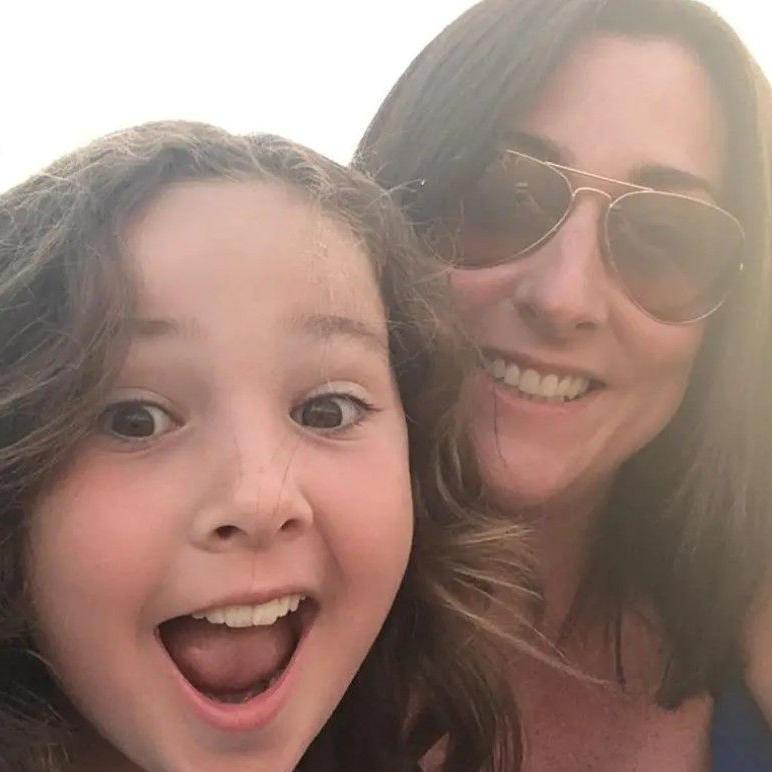
Milly Main died in August 2017 after contracting an infection at the Queen Elizabeth University Hospital campus in Glasgow
The HAD report concluded the available data "does not support the opinion" that the water system at the QEUH had widespread contamination, or that its ventilation system was in an unsafe condition.
The three experts said there had been a "significant reliance" on the 2021 case note review.
Last month the HAD report authors appeared at the inquiry, where it was revealed that the infection cases, including Molly's, linked to the hospital environment in the 2021 case note review were not included in the data handed to them to consider.
Stephanie Spencer, a lawyer with Thompsons Solicitors, said the patients and families that they represented had been left "absolutely furious, really angry".
"They've had this HAD report presented to them after all this time, it is dismantled in the hearings and they're still sitting there with [NHS] Glasgow denying everything that's happened," she said.
"The sad reality is that some of our group will have to return to the hospital by nature of their illness and those that do are very frightened about the state of the hospital today."
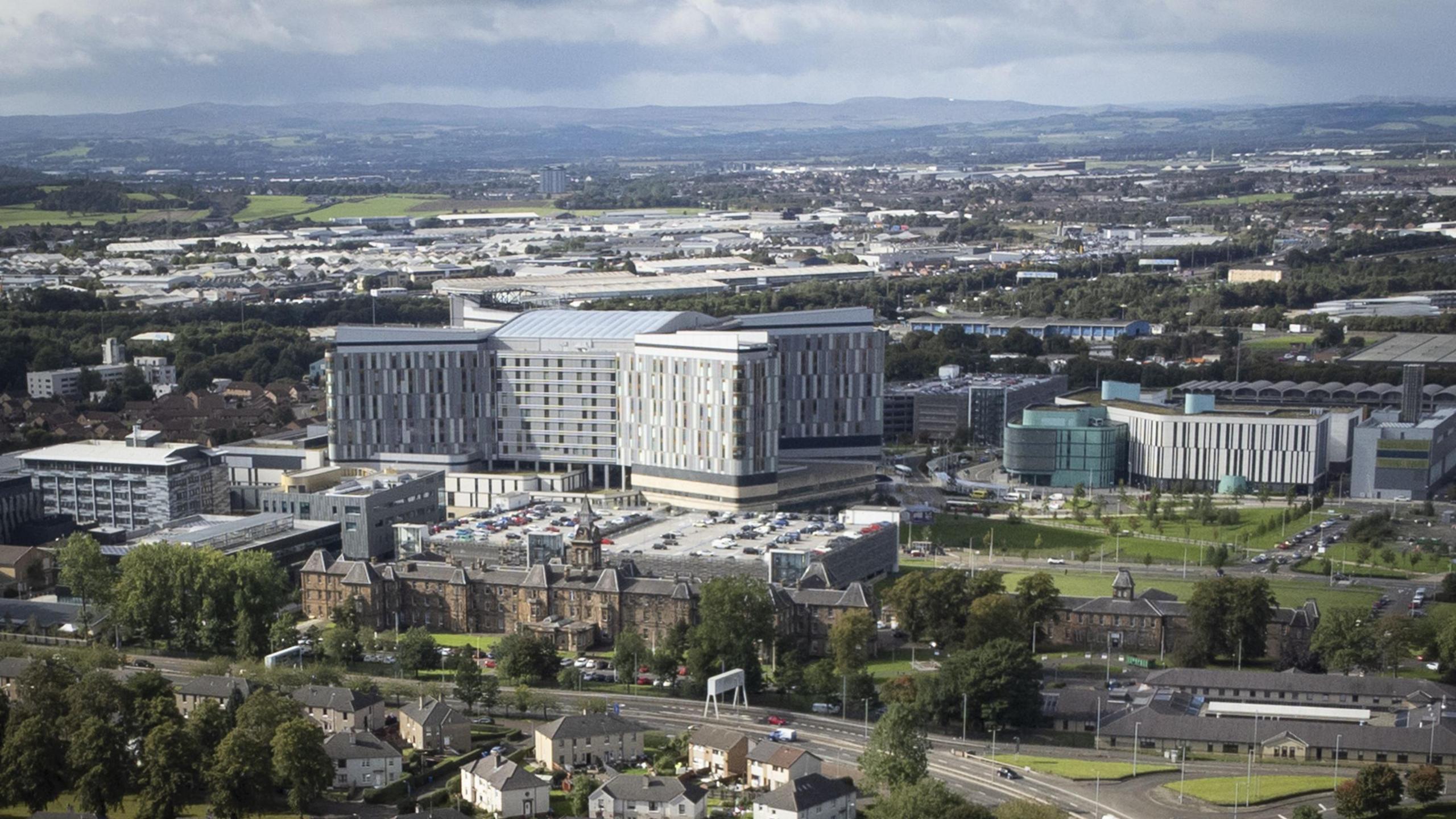
The QEUH campus in Glasgow includes the Royal Hospital for Children
BBC Scotland asked NHS GGC for its position on the case note review in light of the HAD report, and if its "unreserved apology" still stood.
A spokesperson for the board said: "Given both the HAD report and the case note review are being considered as part of the ongoing hospitals inquiry, it would [be] inappropriate for us to comment at this time."
Who will give evidence in the inquiry's next phase?
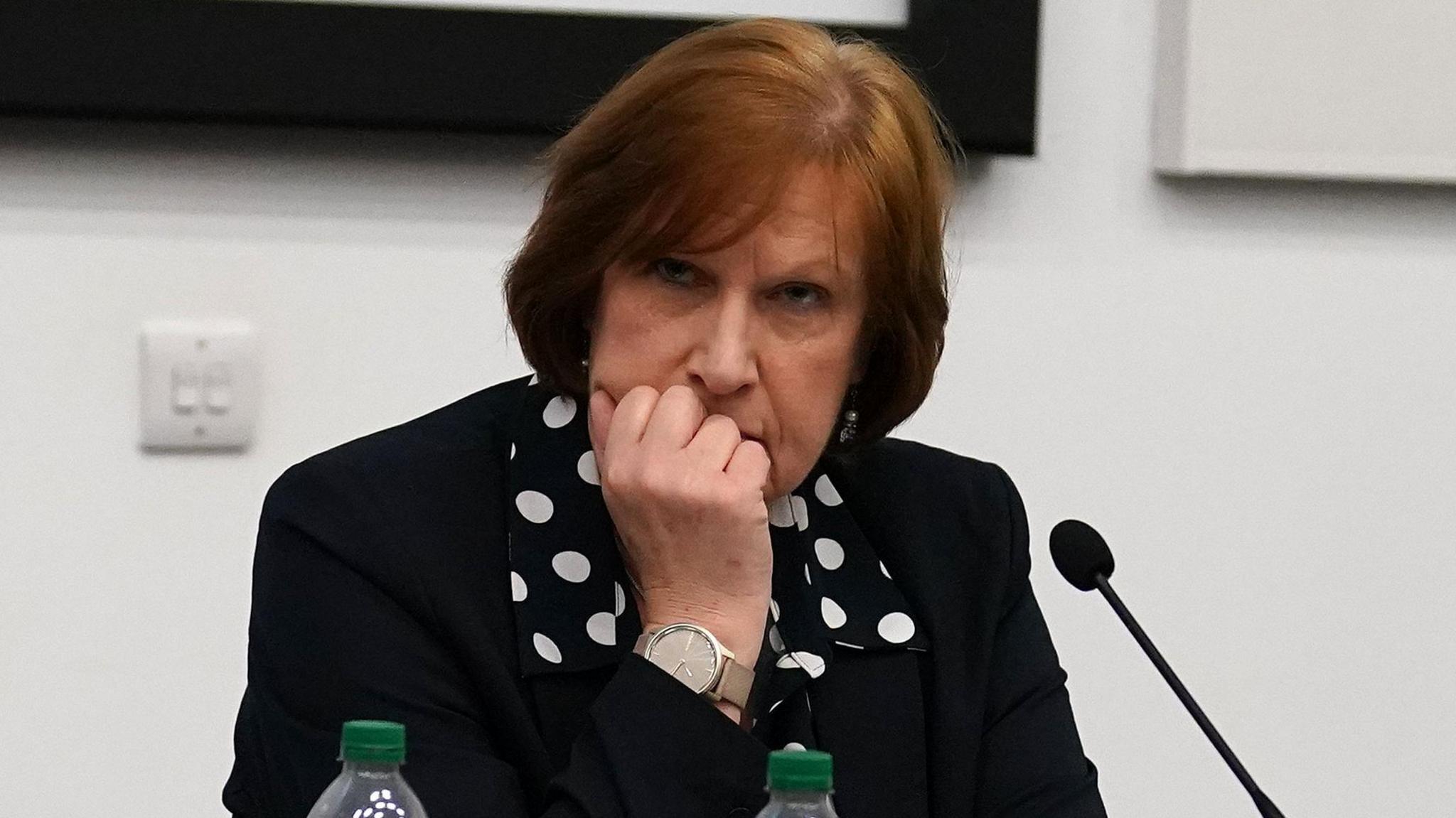
Jane Grant is a former chief executive of NHS Greater Glasgow and Clyde
Many of the key decision-makers will be questioned about their involvement in the saga in the coming weeks as the inquiry enters its next phase.
The people expected to appear include Robert Calderwood, chief operating officer of the health board between 2006 and 2009; his successor Jane Grant, who was also later its chief executive before retiring last year; and John Brown, chairman of NHS GGC between 2015 and 2023.
Former Scottish health secretary Jeane Freeman - who called the hospitals inquiry - will also appear.
It is expected this phase of the inquiry will look at why the Glasgow hospital hospital was "not built right", as some witnesses have claimed, and examine what was done to address safety concerns before and after it opened.
Whistleblowing will also be one of the key issues covered.
One of the senior doctors who raised infection control concerns at the hospital previously told the inquiry that chief executive Ms Grant "urged" her not to blow the whistle.
Dr Penelope Redding, a former clinical director at NHS GGC, claimed there was a profound culture of fear and bullying" at the board which put more people off speaking out.
Following this evidence, a spokesperson for NHS GGC said: "A number of staff being mentioned during these hearings will also provide evidence and will endeavour to support the Inquiry to fully establish the facts."
- Published28 August
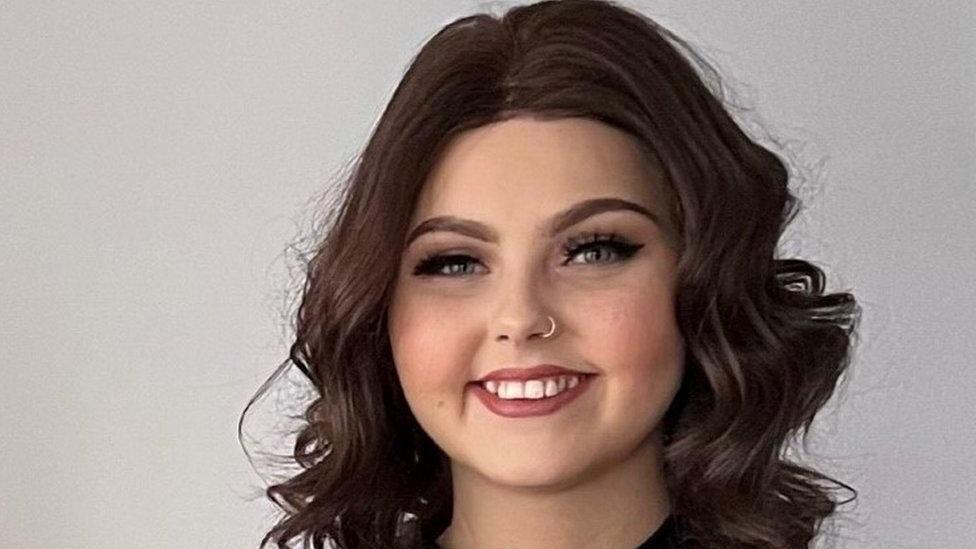
- Published19 August
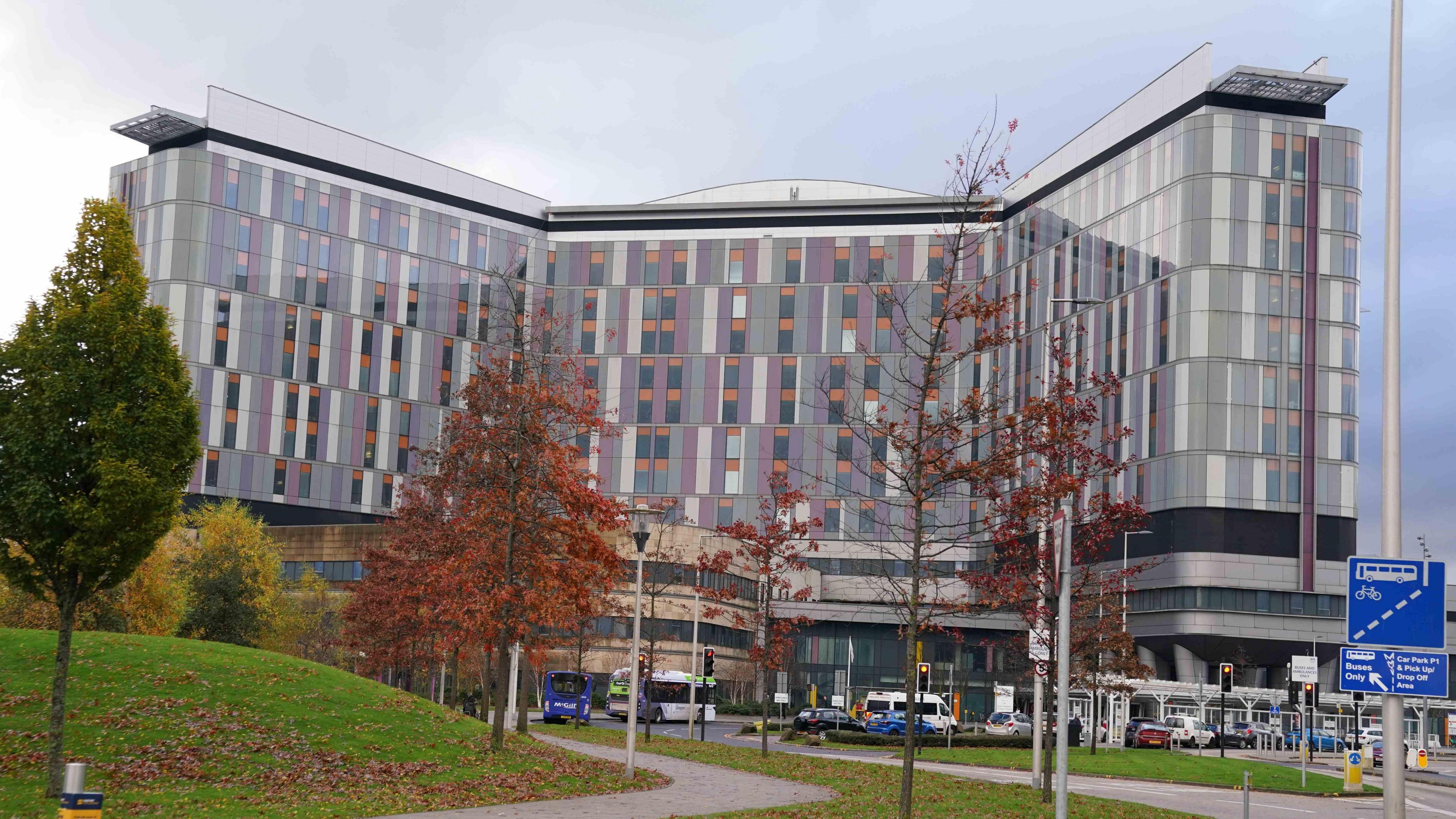
- Published10 October 2024
